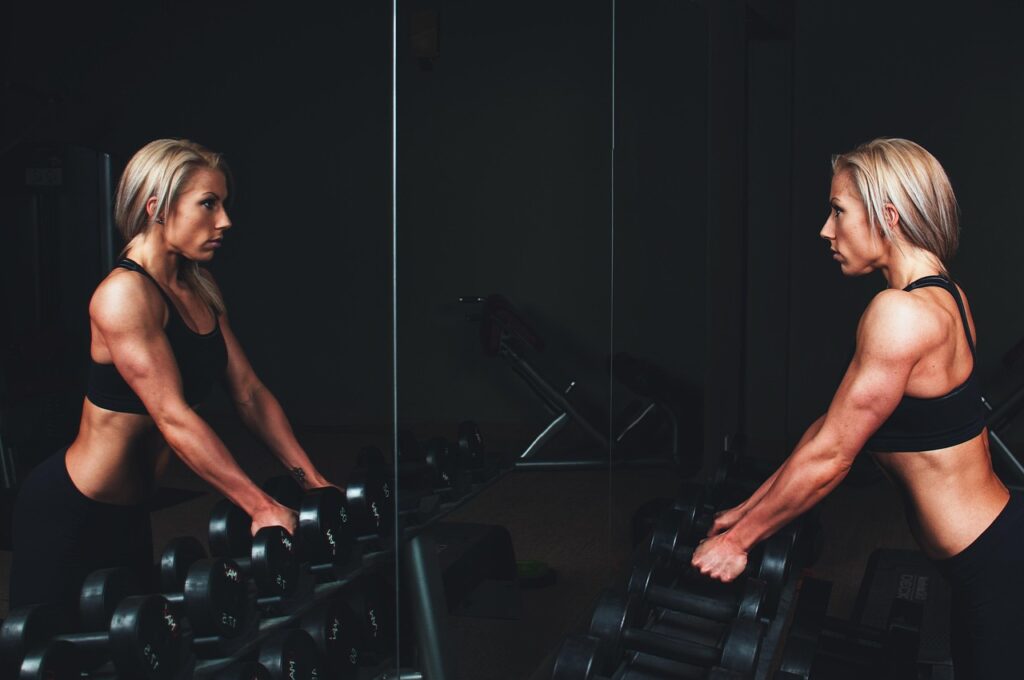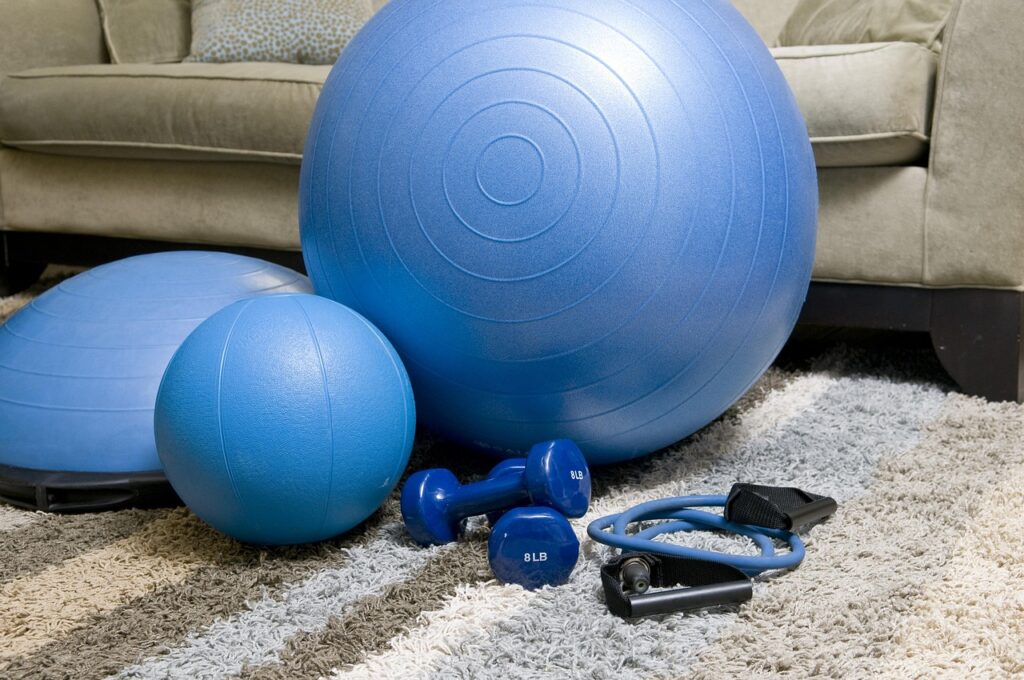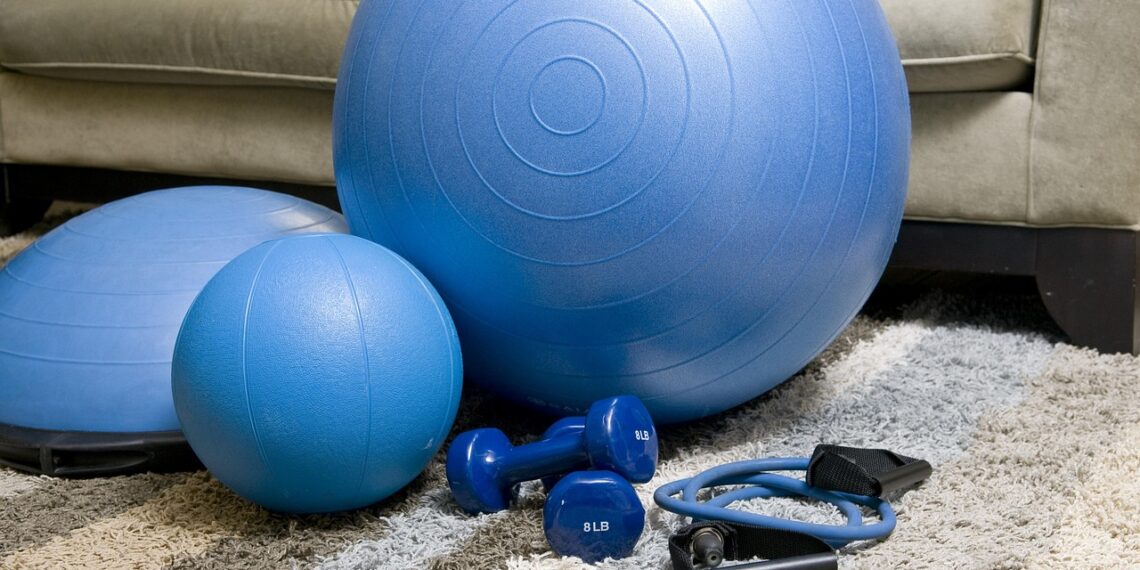Have you ever considered how a full-body workout could transform your fitness journey? Whether you’re just starting out or looking to enhance your current routine, full-body workouts are an excellent way to build strength, improve cardiovascular health, and boost your metabolism—all from the comfort of your own home. Using dumbbells adds intensity and variety to your workouts, making them more enjoyable and effective.

Why Choose a Full-Body Workout?
A full-body workout is beneficial for beginners for several reasons. First, it engages multiple muscle groups in a single session, which can save you time and increase your overall strength. It’s also a great way to learn the basics of weight training and perfect your form before you branch out to targeted workouts. Another plus? You only need a pair of dumbbells to get started.
These workouts can be adjusted to fit your skill level and can be done with minimal equipment, making them accessible to virtually everyone. Plus, they can help build a solid foundation for future fitness endeavors.
Benefits of Full-Body Workouts
-
Time-Efficient: With a busy schedule, you may not have the luxury of spending hours at the gym. Full-body workouts allow you to efficiently target all major muscle groups in around 20–30 minutes.
-
Increased Caloric Burn: Engaging multiple muscles simultaneously elevates your heart rate, promoting higher calorie burn during and after your workout.
-
Improved Functional Fitness: Full-body workouts develop strength that translates into everyday activities, enhancing your overall quality of life.
-
Versatility: You can easily adapt full-body workouts to match your growing fitness level or available equipment, ensuring you can keep challenging yourself.
Getting Started: Equipment You’ll Need
Before you jump into your routines, let’s cover what you’ll need. While a few fitness accessories can add variety to your workouts, the primary focus here will be on dumbbells.
Dumbbells
When it comes to picking your dumbbells, consider these suggestions:
| Weight | Suitable for | Remarks |
|---|---|---|
| 3-5 lbs | Total beginners | Great for mastering form and technique. |
| 8-15 lbs | Intermediate | Excellent for building strength once you’ve perfected your basics. |
| 15+ lbs | Advanced | Push yourself but be aware of proper form to avoid injury. |
If you’re unsure where to start, choosing a lighter weight to begin with is wise. As you gain confidence, gradually increase the resistance to challenge your muscles more effectively.
Your 20-Minute Full-Body Dumbbell Workout Routine
Here’s a full-body workout that’s easy to follow and will get your heart pumping in just 20 minutes. You’ll perform a series of exercises with short rest periods in between to keep your heart rate elevated.
Warm-Up (5 minutes)
Before starting any workout, it’s important to prepare your body. Spend about five minutes warming up with some dynamic stretches and movements to increase blood flow to your muscles.
- Arm Circles (30 seconds forward, 30 seconds backward)
- Leg Swings (15 seconds each leg)
- Bodyweight Squats (1 minute)
- High Knees (1 minute)
- Torso Twists (1 minute)
Circuit Routine (15 minutes)
Perform each exercise for 45 seconds, followed by a 15-second rest. After completing all exercises, rest for one minute and then repeat the circuit.
1. Goblet Squats
-
How to Do It: Stand with feet shoulder-width apart, holding a dumbbell with both hands at your chest. Squat down, keeping your weight in your heels and chest up, and then rise back to starting position.
-
Muscles Worked: Quads, hamstrings, glutes, and core.
2. Push-Ups (Modified or Standard)
-
How to Do It: Place your hands shoulder-width apart on the ground, either on your knees or your toes. Lower your chest towards the floor and push back up.
-
Muscles Worked: Chest, shoulders, triceps, and core.
3. Dumbbell Rows
-
How to Do It: Bend forward slightly with a dumbbell in each hand. Pull the dumbbells towards your rib cage while squeezing your shoulder blades together before lowering back down.
-
Muscles Worked: Back, biceps, and shoulders.
4. Dumbbell Lunges
-
How to Do It: Stand tall and hold dumbbells by your sides. Step forward with one foot, lowering your back knee towards the ground before returning to standing.
-
Muscles Worked: Quads, hamstrings, glutes, and calves.
5. Plank to Shoulder Taps
-
How to Do It: Get into a plank position and lift one hand to tap the opposite shoulder while keeping your body stable. Alternate sides.
-
Muscles Worked: Core, shoulders, and stabilizing muscles of the body.
Cool Down (5 minutes)
After your workout, spend five to ten minutes cooling down. Focus on static stretching to improve flexibility and help with recovery.
- Standing Quad Stretch (30 seconds each leg)
- Hamstring Stretch (30 seconds)
- Shoulder Stretch (30 seconds each arm)
- Chest Stretch (30 seconds)
- Child’s Pose (1-minute hold)
Tips for Success
Consistency is Key
To see progress, you need to commit to a regular workout schedule. Aim for at least three to four full-body workouts each week, along with cardiovascular training for overall health.
Focus on Form
As you increase your weights or modify the exercises, prioritize maintaining correct form. This will not only help prevent injuries but will also maximize the effectiveness of the workout.
Listen to Your Body
As you embark on your fitness journey, it’s crucial to be attentive to how your body feels. If an exercise doesn’t feel right, modify it, or take a break as needed. It’s about progress, not perfection.
Mix It Up
Once you’ve mastered this beginner routine, don’t hesitate to mix in other exercises or different forms of training, like cardio or flexibility workouts, to keep things fresh and exciting.

Common Mistakes to Avoid
-
Skipping Warm-Up and Cool Down: These are essential to prepare your muscles and prevent injury.
-
Using Too Much Weight: Going heavier than you can handle could lead to injury. Start light and progress gradually.
-
Neglecting Nutrition: Your diet plays a critical role in your ability to recover and perform. Focus on balanced meals rich in protein, healthy fats, and whole grains.
-
Inconsistent Routine: Don’t get discouraged if results aren’t immediate. Stick with it, and remember that consistency is what brings change.
Conclusion
Embarking on a fitness journey, especially at home, can feel both exciting and overwhelming. By integrating full-body workouts into your routine, you not only save time but also ensure you’re putting in the foundation for effective, long-term results.
Let this 20-minute dumbbell routine be the springboard to your success. With the right mindset, dedication, and a little patience, you’ll be well on your way to achieving your fitness goals. Your body will thank you, and you’ll start to notice the benefits in everyday activities as your strength and endurance improve. So grab those dumbbells and get started—you’ve got this!











